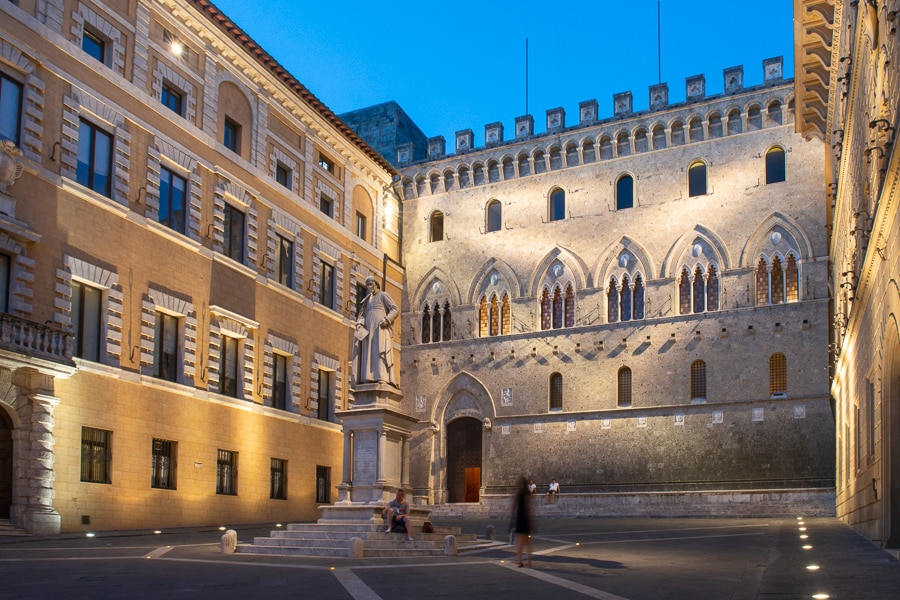
Days may be numbered for the world's oldest bank
Banca Monte dei Paschi di Siena, performed worse than any other bank in a test of its financial health by European regulators, the latest gloomy chapter in a long-running saga of ill-fated deals, financial shenanigans, criminal wrongdoing and even a mysterious death
 Banca Monte dei Paschi di Siena, the world’s oldest bank, in Siena, Italy, Aug. 12, 2021. Last month the bank performed worse than any other in a test of its financial health by European regulators, the latest gloomy chapter in a long-running saga of ill-fated deals, financial shenanigans, criminal wrongdoing and even a mysterious death; Image: Susan Wright/The New York Times
Banca Monte dei Paschi di Siena, the world’s oldest bank, in Siena, Italy, Aug. 12, 2021. Last month the bank performed worse than any other in a test of its financial health by European regulators, the latest gloomy chapter in a long-running saga of ill-fated deals, financial shenanigans, criminal wrongdoing and even a mysterious death; Image: Susan Wright/The New York Times
Last month Banca Monte dei Paschi di Siena, the world’s oldest bank, acquired another distinction: Europe’s weakest lender.
The bank performed worse than any other in a test of its financial health by European regulators, the latest gloomy chapter in a long-running saga of ill-fated deals, financial shenanigans, criminal wrongdoing and even a mysterious death.
The stress test by regulators, which showed that a severe recession would wipe out the bank’s capital, has forced the Italian government to face an unpleasant truth: Monte dei Paschi’s 5 1/2-century run is coming to an end. With prodding from Rome, UniCredit, one of Italy’s largest banks, said last month that it was in talks to buy Monte dei Paschi on the condition that the government keep all the bad loans.
Monte dei Paschi, founded in 1472, will probably live on as a brand name on bank branches in central Italy, and customers probably will not notice much difference, at least at first. But the bank will cease to be a stand-alone entity and a living reminder that Italian merchants during the Renaissance basically invented modern banking. The bank’s operations will be managed from UniCredit’s headquarters in Milan rather than Monte dei Paschi’s fortresslike home office in Siena’s old quarter. The title of oldest bank will probably pass to Berenberg Bank, founded in Hamburg, Germany, in 1590.
The bank’s problems are an unwelcome distraction for Mario Draghi, the Italian prime minister and former president of the European Central Bank, as he tries to push through reforms and end Italy’s status as the eurozone’s perpetual economic laggard.
©2019 New York Times News Service







